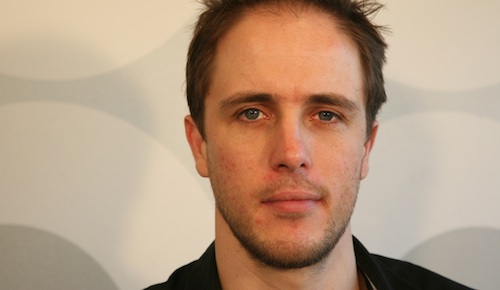
[By Alistair Fairweather]
We human beings are an irrational bunch. When anything new comes along we tend to take one of three basic positions: deify, deny or demonise. It takes time for us to recognise the nuances that allow us to integrate this new force into our world view — be it a pop star, a politician, an idea or a technology. Social media hasn’t reached that point yet — as witnessed by a high-profile piece of denialism by Malcolm Gladwell in last week’s New Yorker magazine.
Gladwell has made a career out of his canny observations on the way humans behave, particularly in groups. His books — which include The Tipping Point, Blink, and Outliers — have earned him both critical acclaim and legions of fans. His success has stoked the fires of a new genre of popular nonfiction — behavioural studies.
So when he gets out the big guns against social media platforms like Twitter and Facebook, you can be sure people will sit up and take notice. And indeed his reasoning is vintage Gladwell — elegantly stated, wide-ranging and full of meaty examples.
The nub of his argument? While social media is good at communicating with large numbers of people, all of them on an equal footing (a “network”), it is poor at organising any meaningful social activism because that requires discipline and top-down organisation (a “hierarchy”).
Gladwell’s touchstone for social change is the civil rights movement of the 1960s, in which hundreds of thousands of people engaged in well-ordered and long-term activism. They had no need for Twitter or Facebook, he snorts.
With the help of pithy quotes by academics, he rubbishes the popular notions that Twitter played an important role in either the Iranian uprising of 2009 or Moldova’s so called “Twitter revolution” of the same year.
Ever a master of rhetoric, Gladwell takes care to acknowledge the strengths of the straw man at which he has been hurling logic bombs. Social media excels at “weak ties” and this is a “wonderful thing”. His concern is that “the instruments of social media are well-suited to making the existing social order more efficient. They are not a natural enemy of the status quo.”
Yet, for all its elegance, there are fatal flaws in Gladwell’s argument. He points out that Martin Luther King Jr had no need for digital media because “98% of the black community could be reached every Sunday morning at church”. This example neatly cancels out his whole point: that was a 1960s reality, not a 21st century one.
If you want to reach masses of people quickly and cheaply in 2010 you do it via the Internet in general and social media in particular. Facebook has well over half a billion active users, Twitter well over 100m. That makes them the third and 12th biggest “countries” on earth.
He also implies that people are so foolish that they confuse social media usage with real activism. He frets that “Facebook activism succeeds not by motivating people to make a real sacrifice but by motivating them to do the things that people do when they are not motivated enough to make a real sacrifice”.
Ideological net
The reality is that most people are not cut out to be activists. Yes, hundreds of thousands of people participated in the civil rights movement, but they were still a small fraction of the population for which they were risking their lives. That kind of activism takes a special commitment and requires that a specific set of social variables are in place. Otherwise the civil rights movement would have happened much sooner.
What social media excels at is casting an ideological net widely into masses of people to gather up nascent activists. Just look at Barack Obama’s presidential campaign — an example Gladwell studiously ignores. Literally millions of grassroots campaigners were recruited via social media. These are youngsters who got out there, knocked on doors, raised money and actually made a difference.
In essence social media is the accelerant — not the fuel itself. For change to happen, people need to take action in the real world. And, as Gladwell so cogently points out, that requires an organisational hierarchy. But in his dismissal of social media he is falling into the same trap as the people who blame SMS for ruining the fine art of phone conversation: he is blaming the technology for the flaws of the humans who use it.
Evan Williams and Biz Stone, the founders of Twitter, were naturally unimpressed by Gladwell’s attack. “Anyone who’s claiming that sending a tweet by itself is activism, that’s ludicrous — but no one’s claiming that. At least, no one that’s credible,” said Williams. But the most palpable hit was landed by Stone when he implied that Gladwell had singled out social media precisely because of the buzz it would generate.
Whatever his standpoint may be, it’s encouraging to have a thinker of Gladwell’s stature grappling with social media. Though he questions its specific credentials as an agent for meaningful social change, Gladwell clearly recognises social media’s power and importance. To me this signals that the medium has finally reached the mainstream. Viva la revolución.
- Alistair Fairweather is digital platforms manager at the Mail & Guardian
Visit the Mail & Guardian Online, the smart news source
- Subscribe to our free daily newsletter
- Follow us on Twitter or on Facebook

